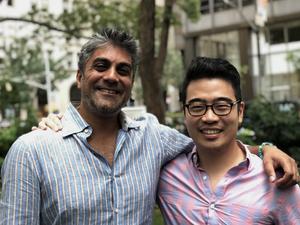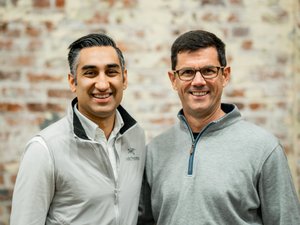
Seasoned entrepreneurs are well-acquainted with failure. It’s almost unavoidable in the lifecycle of a successful company and founder. But it’s not the failure that determines the success of any given entrepreneur, but rather his or her response to that failure.
Allow me to explain.
In Ellen Galinsky’s book “Mind in the Making: The Seven Essential Life Skills Every Child Needs,” she writes about a study involving two groups of children who were asked to participate in an experiment.
Both groups were given a simple puzzle to solve, and they all succeeded. Next, the two groups had to solve a challenging puzzle exposing them to failure. After failing to solve the second puzzle, the children of both groups were given a choice: try the challenging puzzle again or repeat the simple puzzle.
For one group of children, the clear majority asked to go back to the simple puzzle. They did not want to deal with a negative experience again — not feeling smart and thinking they are just not good at this more challenging task. In the other group of children, the majority wanted to repeat the challenging puzzle, seeing it as an opportunity to learn.
What differentiated the groups? The mindset they had when it came to dealing with failure.
Now, you may be wondering what this has to do with entrepreneurship. The answer is, a lot.
There are two basic mindsets when it comes to dealing with failure: the fixed mindset and the growth mindset.
Stanford University Professor Carol Dweck writes about them in her book “Mindset: The New Psychology of Success.” A fixed mindset is a belief that intelligence and abilities are inborn. They assume that they are either good at something or not. People with a fixed mindset avoid challenges and failures. Failure makes them feel not smart, and constructive criticism is seen as a personal attack. They want to hear that they are smart, and success is a confirmation of intelligence. They believe that intelligence and abilities equal success.
On the other hand, a growth mindset is the belief that intelligence and abilities are developed by working hard. They assume they can learn anything they want to through practice, perseverance and effort. They are lifelong learners. People with a growth mindset want to challenge themselves and see failure as a learning opportunity. They see constructive criticism as valuable feedback, want to hear that they try hard and think that failure is an essential part of growth. They define an opportunity to learn as a success.
You can reflect or take online assessments to determine what you are. People are typically not one or the other. Typical categories are a strong growth mindset, growth mindset with some fixed ideas, fixed mindset with some growth or strong fixed mindset.
The valuable lesson is that the mindset is not inborn; it is something that can be adopted.
The entrepreneurial mindset is closest to the growth mindset; it is the ability to persevere, accept and learn from failure.
Most successful entrepreneurs seem like an overnight success, but their real story is very different. Let’s take GoPro CEO Nick Woodman as an example. When he was 22, he decided to work hard and dedicate himself to becoming a successful entrepreneur. His first two startups, EmpowerAll.com and Funbug, never found much success. EmpowerAll.com attempted to sell electronic products and failed before it even started. For his second company, FunBug, a gaming and marketing platform, he raised $3.9 million in funding but failed to gain traction as there were too many tech startups in the early 2000s. Finally, he found success with GoPro.
Woodman describes these failures as scary at the time, but a growth mindset — perseverance and the ability to pick yourself up and try again and again while learning from failure — is most important to entrepreneurial success.
Failure is an opportunity to learn. It makes us stronger. To quote Oscar Wilde: “Experience is simply the name we give our mistakes.” And you can adopt a growth mindset over time.
To be successful in the world of entrepreneurship, you have to.
Dr. Michael T. Geier is an assistant professor of management in the Porter B. Byrum School of Business at Wingate University.
For more stories like this, subscribe to StartCharlotte’s free weekly startup newsletter.








